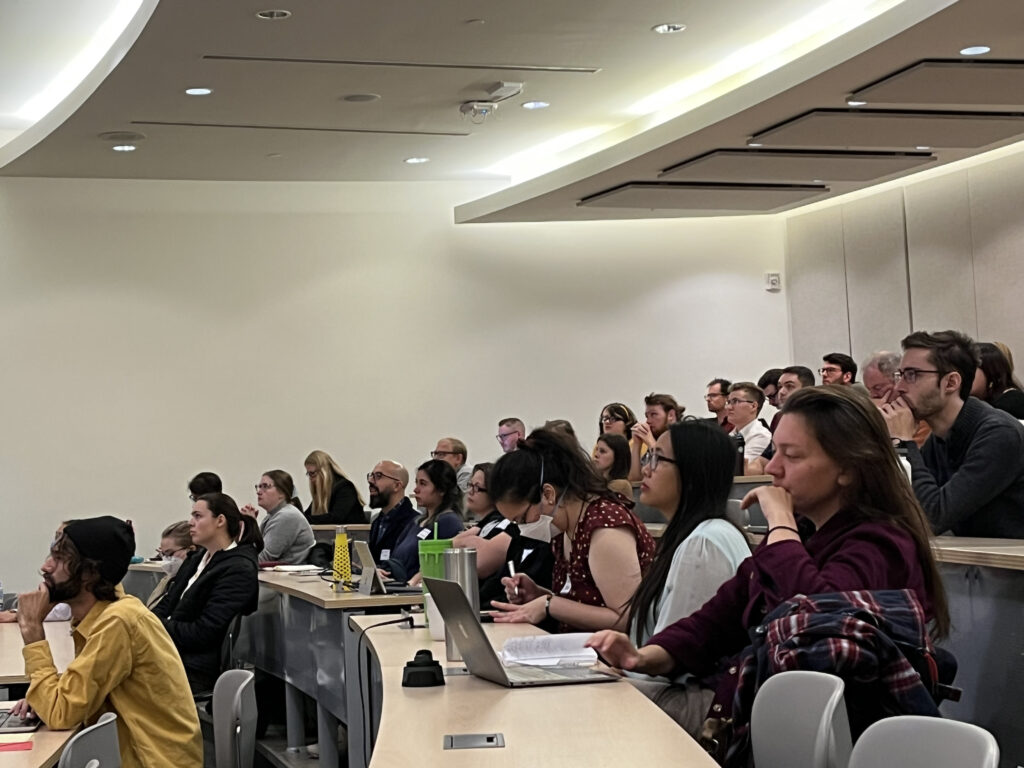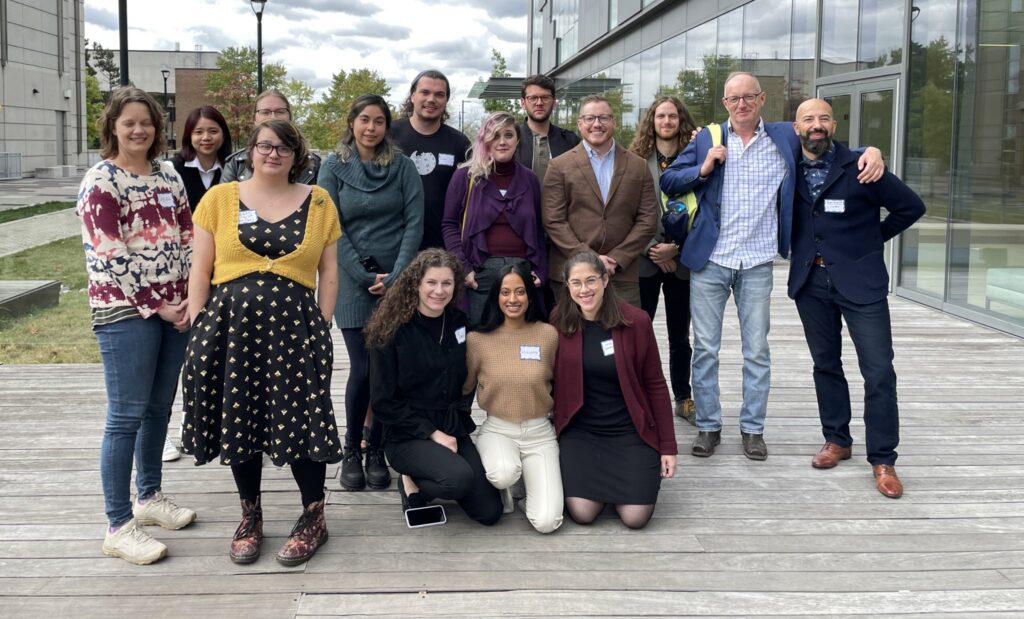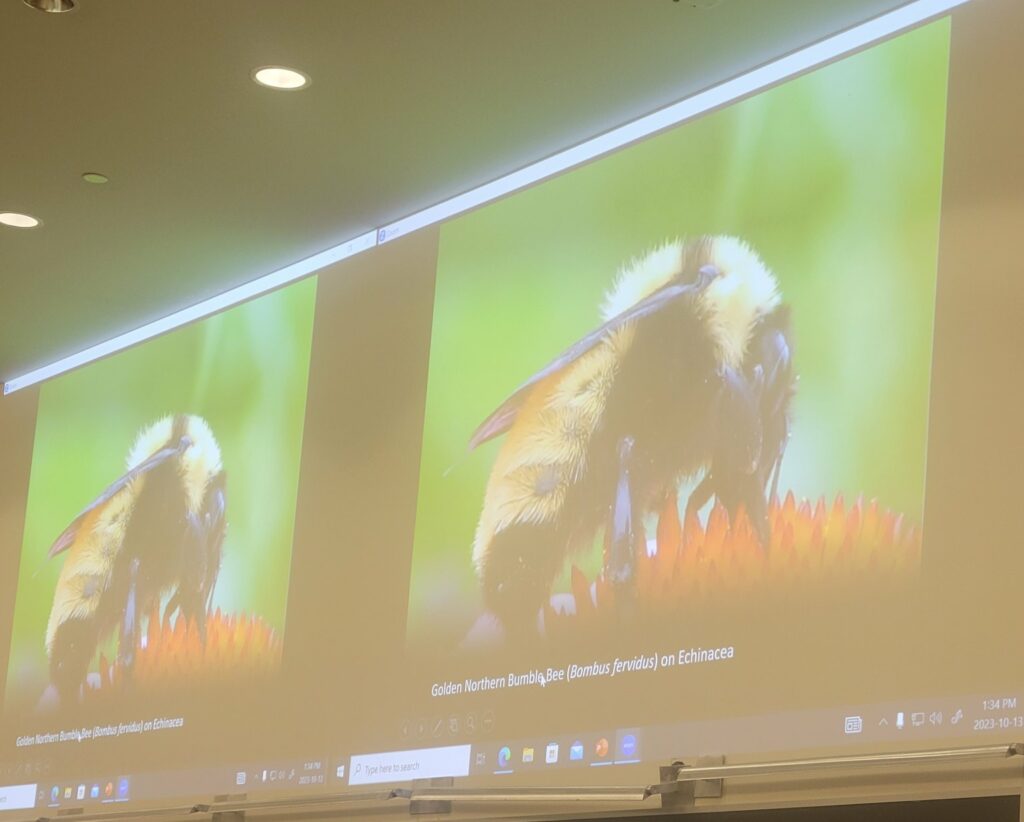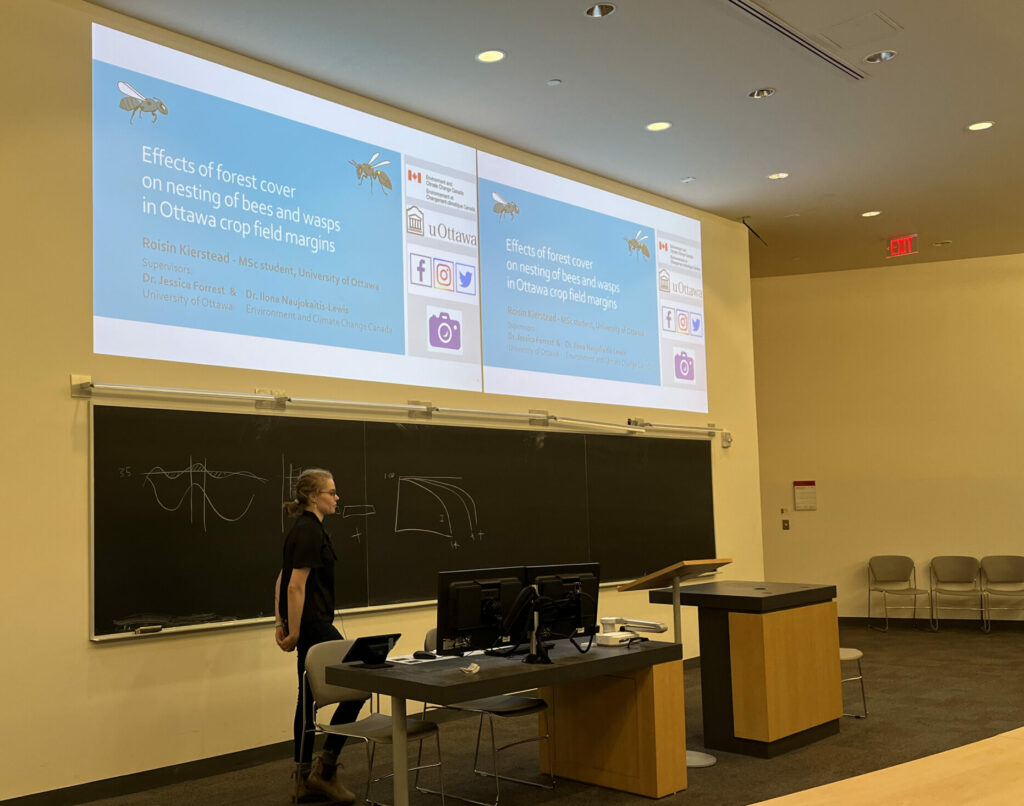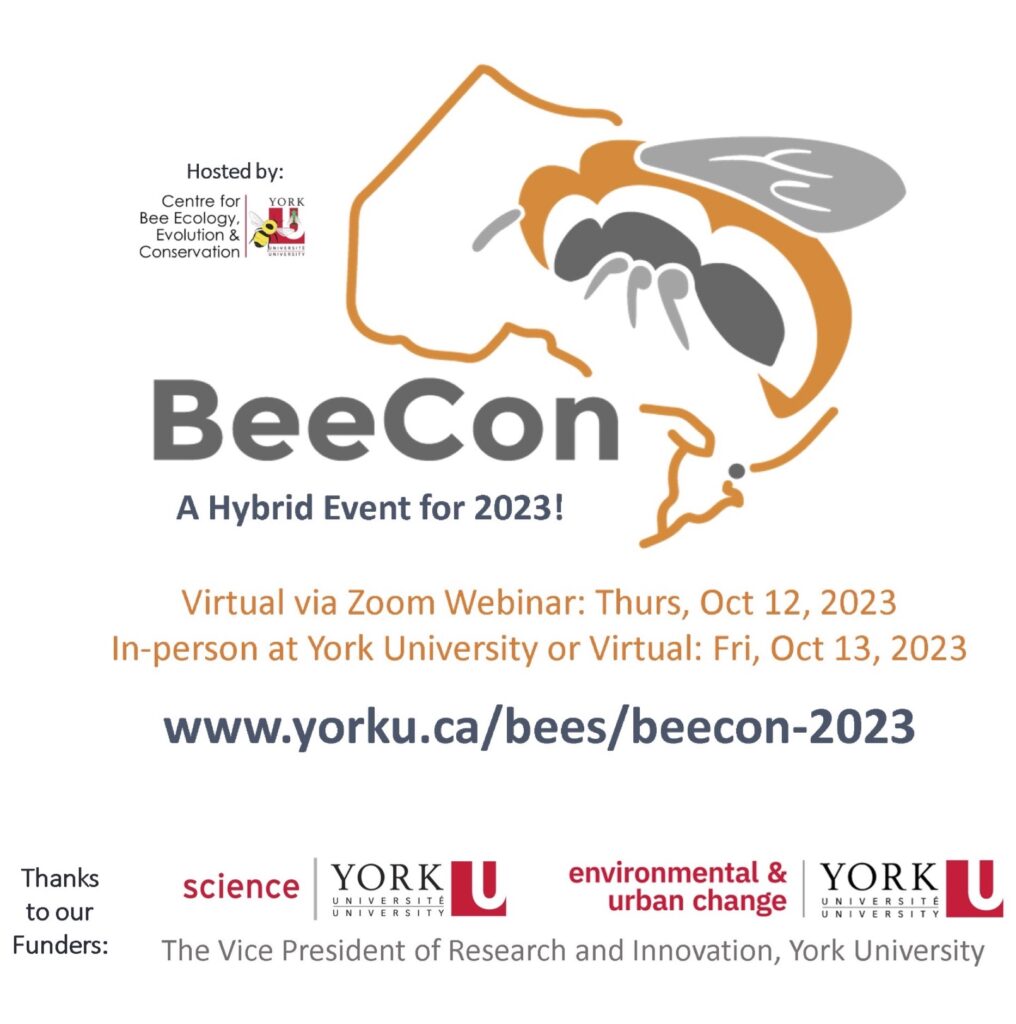
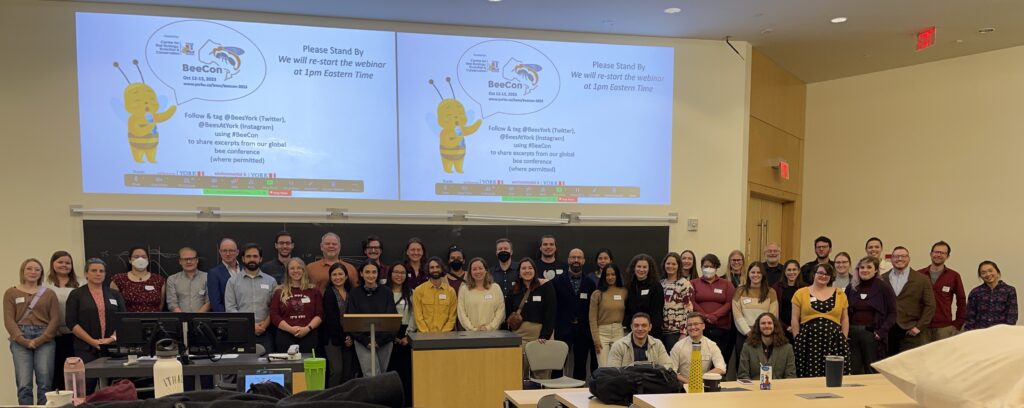
BeeCon 2023 was a hybrid event that brought brings together bee biologists on a global scale to discuss bees, collection methods, pollination, genomics, conservation and behaviour. This year’s BeeCon welcomed bee researchers and community members from over 30 countries spanning six continents. BeeCon took place on Oct. 12 (via Zoom Webinar) and on Oct 13 with an in-person option at York University (Life Sciences Building, Room 105, First Floor) as well as a virtual option. More details including the schedule, a full program, and location details are posted below.
Videos Now Available!
Watch the full playlist of BeeCon 2023 videos, or see below for individual videos.
Subscribe to our YouTube channel to get notifications of when other videos become available.
Two Page Schedule at a Glance
Full Schedule with Abstracts
Full Program
Keynote Speaker: Dr. Kevin Matteson, "Supporting Pollinator Conservation in Cities”
Dr. Kevin Matteson is an ecologist and pollination biologist with a research focus on urbanized landscapes. For his doctoral research conducted at Fordham University, Kevin utilized GIS and insect sampling to evaluate landscape factors influencing the diversity of bees and butterflies in community gardens of East Harlem and the Bronx. His postdoctoral work took him to Chicago where he was Co-PI on a multi-year NSF-funded research project on pollination limitation in urban landscapes. Kevin is currently interested in community-based conservation efforts in cities and, through his work with Project Dragonfly at Miami University in Oxford, Ohio, he is a passionate advocate of participatory and inquiry-based graduate education.
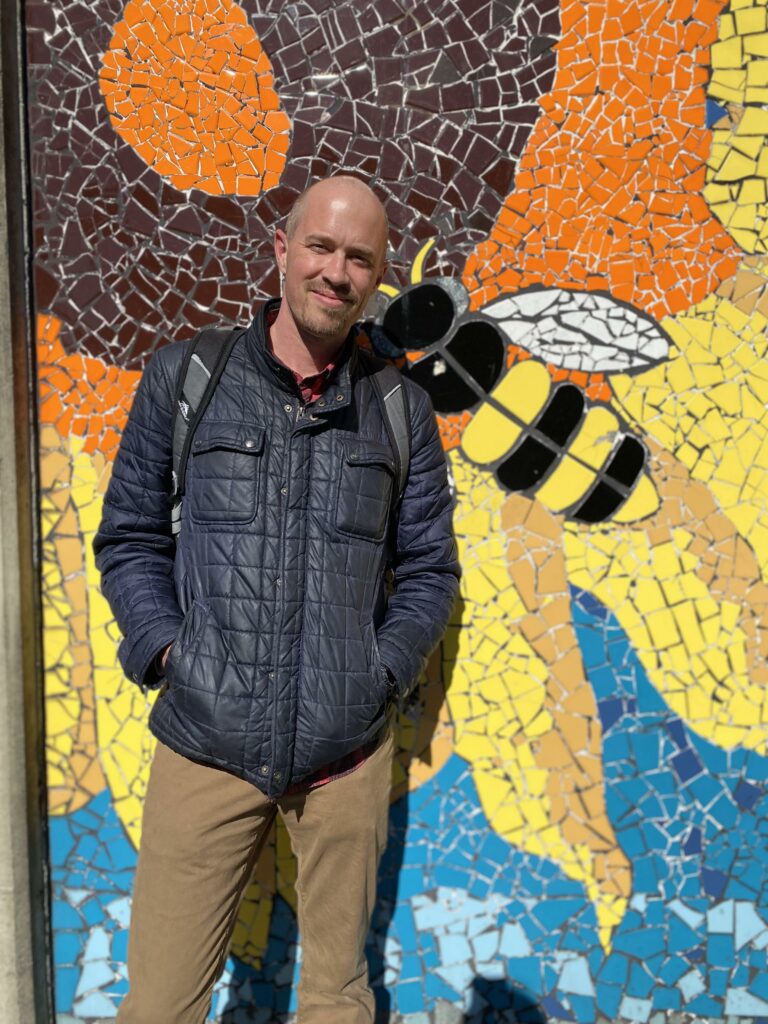
As urbanization increases and more humans live in cities, it is important to determine what pollinators exist in urban areas and how we can support them. Drawing on over two decades of research in New York City and Chicago, Kevin will share research insights on what plants benefit urban pollinators, how the developed landscape of cities can be optimized to increase bees and other beneficial insects, the role of citizen science, and more. Ultimately, cities provide a fascinating opportunity to conserve wild bees and other pollinators while also increasing ecological exposure to these amazing species with which we share the urban landscape.
Thanks for our sponsors!
BeeCon 2023 was a hybrid in-person and online event, and we plan to run it completely free for all participants thanks to our generous sponsors!
Support for this event is provided by York University's:
- VPRI (Office of the Vice President of Research and Innovation)
- Faculty of Environmental and Urban Change
- Faculty of Science
Learn more about past BeeCon events here.
Day 1 Presentations
Laura Newburn, Coordinator of the Centre for Bee Ecology, Evolution and Conservation, gave the introduction to Day 1 of BeeCon 2023.
Slobodan Davidović, a Research Associate from the University of Belgrade gave a presentation entitled: Two different pollinator species Apis mellifera and Bombus terrestris as indicators of heavy metal pollution near the mining complex in Bor, Serbia
Latif Iddrisu Nasare, a Lecturer at the University for Development Studies gave a talk Alternative forage for shea (Vitellaria paradoxa) flower visitors in northern Ghana.
Evan Abramson of Landscape Interactions gave a talk entitled Pollinate Now: Bioregional Strategy for Habitat RestoraCon in the Hudson River Estuary Watershed.
Kimball Clark, the owner of NativeBees.com, gave a talk entitiled Introducing the Hex Condo: the all-in-one habitat for solitary bees.
Sarthok Rasique Rahman, a Postdoctoral Researcher from The University of Alabama presented a talk entitiled Genome-wide DNA methylation patterns in populations from spatial-environmental range extremes of the bumble bee Bombus vosnesenskii
Natalie Herbison, an undergraduate researcher at the University of Kansas, gave a talk entitled Body size nor sex influence criCcal thermal limits in a solitary spring bee.
Trisha Panganiban, an undergraduate researcher at the National Science Foundation REU, gave a talk entitled Dietary carbohydrates increase heat stress resistance of honey bees’ foragers
Laura Newburn, Coordinator of the Centre for Bee Ecology, Evolution and Conservation, gave the concluding remarks to Day 1 of BeeCon 2023.
Day 2 Presentations
Laura Newburn, Coordinator of the Centre for Bee Ecology, Evolution and Conservation, gave the introduction to Day 2 of BeeCon 2023.
Nora Romero, a PhD Candidate at York University, gave a talk entitled Morphological phylogeny and insights on subgeneric classification of the bee genus Liphanthus (Andrenidae: Panurginae)
Lydia Wong, a PhD student at the University of Ottawa, gave a talk entitled Nesting resource limitation: Determinants of upper-elevation range limits in cavity- nesting bees?
Sophie Killam, an MSc Student at Western University, gave a talk entitled Effects of lactic acid-producing bacteria supplementation on the hygienic behaviour of Western honey bees.
Kevin Matteson, the Associate Director of Master's Programs for Project Dragonfly at Miami University, gave the BeeCon 2023 keynote presentation entitled Supporting Pollinator Conservation in Cities
Parker Smale, a Bumble Bee Lab Biologist with Wildlife Preservation Canada, gave a talk entitled Conservation in Captivity: Lessons in breeding declining bumble bee species Bombus terricola.
Roisin Kierstead, an MSc Student and University of Ottawa and Environment Climate Change Canada, gave a talk entitled Impacts of forest cover in crop field margins to wild bees and wasps
Laura Newburn, Coordinator of the Centre for Bee Ecology, Evolution and Conservation, gave the concluding remarks to Day 2 of BeeCon 2023.
Instructions for BeeCon 2023 Speakers:
Speakers will be allowed a maximum of 12 minutes of presentation time, with a 2-3 min Q&A period at the conclusion.
For those presenting virtually: We will be using Zoom's webinar feature as the platform. Each speaker will be added as a webinar panelist for the day on which you will be presenting. Please join the webinar in the break session before your talk and identify yourself as a panelist.
For those presenting in person: We will be using Microsoft PowerPoint run on a Windows-based computer. Please bring your presentation on a USB or send to beec @ yorku.ca in advance so we can pre-load the presentations.
More information for speakers can be found by clicking here
